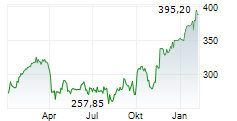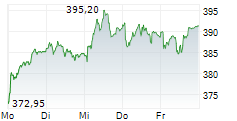
- Positive data confirm Evrysdi efficacy and safety in children first treated pre-symptomatically before six weeks of age, with most achieving motor milestones similar to children without SMA
- All children were able to swallow and feed orally, with none requiring permanent ventilation
- Evrysdi is the only non-invasive SMA therapy and is approved in over 100 countries, with more than 16,000 people with SMA treated globally
Basel, 14 October 2024 - Roche (SIX: RO, ROG; OTCQX: RHHBY) presented positive two-year data from the ongoing RAINBOWFISH study at the 29th World Muscle Society (WMS) Congress, 8-12 October, 2024, assessing the efficacy and safety of Evrysdi® (risdiplam) in children with SMA who were treated pre-symptomatically as infants before six weeks of age (n=23). The study found the majority of children achieved key motor milestones, were able to swallow and feed orally, and demonstrated cognitive skills typical of children without SMA, with none requiring permanent ventilation.
"In children with SMA, motor neuron degeneration starts before the onset of symptoms, so time is of the essence if we hope to preserve muscle function," said Laurent Servais, M.D., Ph.D., Professor of Paediatric Neuromuscular Diseases at the MDUK Oxford Neuromuscular Centre. "It's heartening to see that through early intervention with Evrysdi these children have achieved important milestones like sitting, standing and walking that would typically be unattainable without treatment."
All of the children treated with Evrysdi who had three or more SMN2 copies (n=18), achieved standing and walking (100%) milestones as assessed by Bayley Scales of Infant and Toddler Development, third edition (BSID-III) and Hammersmith Infant Neurological Examination, Module 2 (HINE-2), with most achieving these milestones within World Health Organisation (WHO) windows of typical child development. Among the children with two SMN2 copies (n=5), all could sit (100%) and most could stand and walk (60%) independently after two years of treatment. After two years of treatment, all children were able to swallow and feed orally and none required permanent ventilation. Natural history studies indicate that without disease-modifying treatment, children with Type 1 SMA would not be able to reach such milestones, nor typically live past the age of two.
After two years of Evrysdi treatment, children in the study showed cognitive skills typical of children without SMA, as assessed by the BSID-III Cognitive Scale. This study was the first clinical trial in SMA to assess cognition as an exploratory endpoint using a standardised scale.
"These two-year findings confirm the potential of early intervention with Evrysdi to meaningfully improve the lives of children with SMA," said Levi Garraway, M.D., Ph.D., Roche's Chief Medical Officer and Head of Global Product Development. "Working in tandem with newborn screening programmes, Evrysdi is the only non-invasive SMA treatment that can be administered during a child's first hours of life."
To assess outcomes of early treatment initiation before the onset of symptoms, children in the study started treatment with Evrysdi before six weeks of age (median age of first dose was 25 days). The study analysed outcomes against the number of copies of the SMN2 gene each child had. Generally, fewer SMN2 copy numbers are associated with more severe SMA.
There were no deaths or adverse events (AEs) leading to withdrawal or treatment discontinuation. The most common AEs were teething, gastroenteritis, diarrhoea, eczema and pyrexia. The AEs observed in the year-two analysis are generally consistent with those AEs seen in other Evrysdi trials in SMA. AEs were more reflective of age than underlying SMA. The majority of AEs were not considered treatment-related and resolved over time.
Roche leads the clinical development of Evrysdi as part of a collaboration with the SMA Foundation and PTC Therapeutics.
About Evrysdi® (risdiplam)
Evrysdi is a survival motor neuron 2 (SMN2) splicing modifier designed to treat SMA caused by mutations in chromosome 5q that lead to survival motor neuron (SMN) protein deficiency. Evrysdi is administered daily at home in liquid form either by feeding tube or by mouth.
Evrysdi is designed to treat SMA by increasing and sustaining the production of SMN protein in the central nervous system (CNS) and peripheral tissues. SMN protein is found throughout the body and is critical for maintaining healthy motor neurons and core motor functions, such as swallowing, speaking and breathing.
Evrysdi was granted PRIME designation by the European Medicines Agency (EMA) in 2018 and Orphan Drug Designation by the U.S. Food and Drug Administration in 2017. In 2021, Evrysdi was awarded Drug Discovery of the Year by the British Pharmacological Society as well as the Society for Medicines Research Award for Drug Discovery. Evrysdi is currently approved in more than 100 countries, and the dossier is under review in a further 12 countries. A new risdiplam room-temperature stable tablet is currently under review by regulators.
Evrysdi is currently being, or has been, evaluated in numerous global multicentre trials in people with SMA:
- FIREFISH (NCT02913482) - an open-label, two-part pivotal clinical trial in infants with Type 1 SMA. Infants were approximately 5.5 months of age (median) at the time of enrollment and of the 58 infants that completed the first year of treatment, 52 entered the open-label extension study. The study met its primary endpoint and has concluded after five years of follow up.
- SUNFISH (NCT02908685) - a two-part, double-blind, placebo-controlled pivotal study in people aged 2-25 years with Types 2 or 3 SMA. The study met its primary endpoint.
- JEWELFISH (NCT03032172) - an open-label exploratory trial designed to assess the safety, tolerability, pharmacokinetics and pharmacodynamics in people with SMA aged six months to 60 years who received other investigational or approved SMA therapies for at least 90 days prior to receiving Evrysdi. The study has completed recruitment (n=174).
- RAINBOWFISH (NCT03779334) - an open-label, single-arm, multicentre study, investigating the efficacy, safety, pharmacokinetics, and pharmacodynamics of Evrysdi in babies (n=26), from birth to six weeks of age (at first dose) with genetically diagnosed SMA who are not yet presenting with symptoms. The study met its primary endpoint.
- MANATEE (NCT05115110) - a phase II/III clinical study to evaluate the safety and efficacy of GYM329 (RG6237), an anti-myostatin molecule targeting muscle growth, in combination with Evrysdi for the treatment of SMA in patients two-10 years of age. The FDA Office of Orphan Products Development granted GYM329 Orphan Drug Designation for the treatment of patients with SMA in December 2021. The study is currently recruiting.
- HINALEA 1 (NCT05861986) and HINALEA 2 (NCT05861999) - phase IV clinical studies to evaluate the effectiveness and safety of Evrysdi in patients under two years of age at enrollment, who received onasemnogene abeparvovec gene therapy either pre-symptomatically or post-symptomatically, following a genetically confirmed diagnosis of 5q-autosomal recessive SMA. The studies are currently recruiting.
About SMA
SMA is a severe, progressive neuromuscular disease that can be fatal. It affects approximately one in 10,000 babies and is the leading genetic cause of infant mortality. SMA is caused by a mutation of the survival motor neuron 1 (SMN1) gene, which leads to a deficiency of SMN protein. This protein is found throughout the body and is essential to the function of nerves that control muscles and movement. Without it, nerve cells cannot function correctly, leading to muscle weakness over time. Depending on the type of SMA, an individual's physical strength and their ability to walk, eat or breathe can be significantly diminished or lost.
About Roche in Neuroscience
Neuroscience is a major focus of research and development at Roche. Our goal is to pursue groundbreaking science to develop new treatments that help improve the lives of people with chronic and potentially devastating diseases.
Roche is investigating more than a dozen medicines for neurological disorders, including multiple sclerosis, spinal muscular atrophy, neuromyelitis optica spectrum disorder, Alzheimer's disease, Huntington's disease, Parkinson's disease and Duchenne muscular dystrophy. Together with our partners, we are committed to pushing the boundaries of scientific understanding to solve some of the most difficult challenges in neuroscience today.
About Roche
Founded in 1896 in Basel, Switzerland, as one of the first industrial manufacturers of branded medicines, Roche has grown into the world's largest biotechnology company and the global leader in in-vitro diagnostics. The company pursues scientific excellence to discover and develop medicines and diagnostics for improving and saving the lives of people around the world. We are a pioneer in personalised healthcare and want to further transform how healthcare is delivered to have an even greater impact. To provide the best care for each person we partner with many stakeholders and combine our strengths in Diagnostics and Pharma with data insights from the clinical practice.
For over 125 years, sustainability has been an integral part of Roche's business. As a science-driven company, our greatest contribution to society is developing innovative medicines and diagnostics that help people live healthier lives. Roche is committed to the Science Based Targets initiative and the Sustainable Markets Initiative to achieve net zero by 2045.
Genentech, in the United States, is a wholly owned member of the Roche Group. Roche is the majority shareholder in Chugai Pharmaceutical, Japan.
For more information, please visit www.roche.com.
All trademarks used or mentioned in this release are protected by law.
Roche Global Media Relations
Phone: +41 61 688 8888 / e-mail: media.relations@roche.com
| Hans Trees, PhD Phone: +41 79 407 72 58 | Sileia Urech Phone: +41 79 935 81 48 |
| Nathalie Altermatt Phone: +41 79 771 05 25 | Lorena Corfas Phone: +41 79 568 24 95 |
| Simon Goldsborough Phone: +44 797 32 72 915 | Karsten Kleine Phone: +41 79 461 86 83 |
| Nina Mählitz Phone: +41 79 327 54 74 | Kirti Pandey Phone: +49 172 6367262 |
| Yvette Petillon Phone: +41 79 961 92 50 | Dr. Rebekka Schnell Phone: +41 79 205 27 03 |
Roche Investor Relations
| Dr. Bruno Eschli Phone: +41 61 68-75284 e-mail: bruno.eschli@roche.com | Dr. Sabine Borngräber Phone: +41 61 68-88027 e-mail: sabine.borngraeber@roche.com (mailto:sabine.borngraeber@roche.com) |
| Dr. Birgit Masjost Phone: +41 61 68-84814 e-mail: birgit.masjost@roche.com |
Investor Relations North America
| Loren Kalm Phone: +1 650 225 3217 e-mail: kalm.loren@gene.com |
Attachment
- 20241014_RAINBOWFISH 2-year_EN (https://ml-eu.globenewswire.com/Resource/Download/becfa961-0d73-448f-928c-97fd102b38d2)





